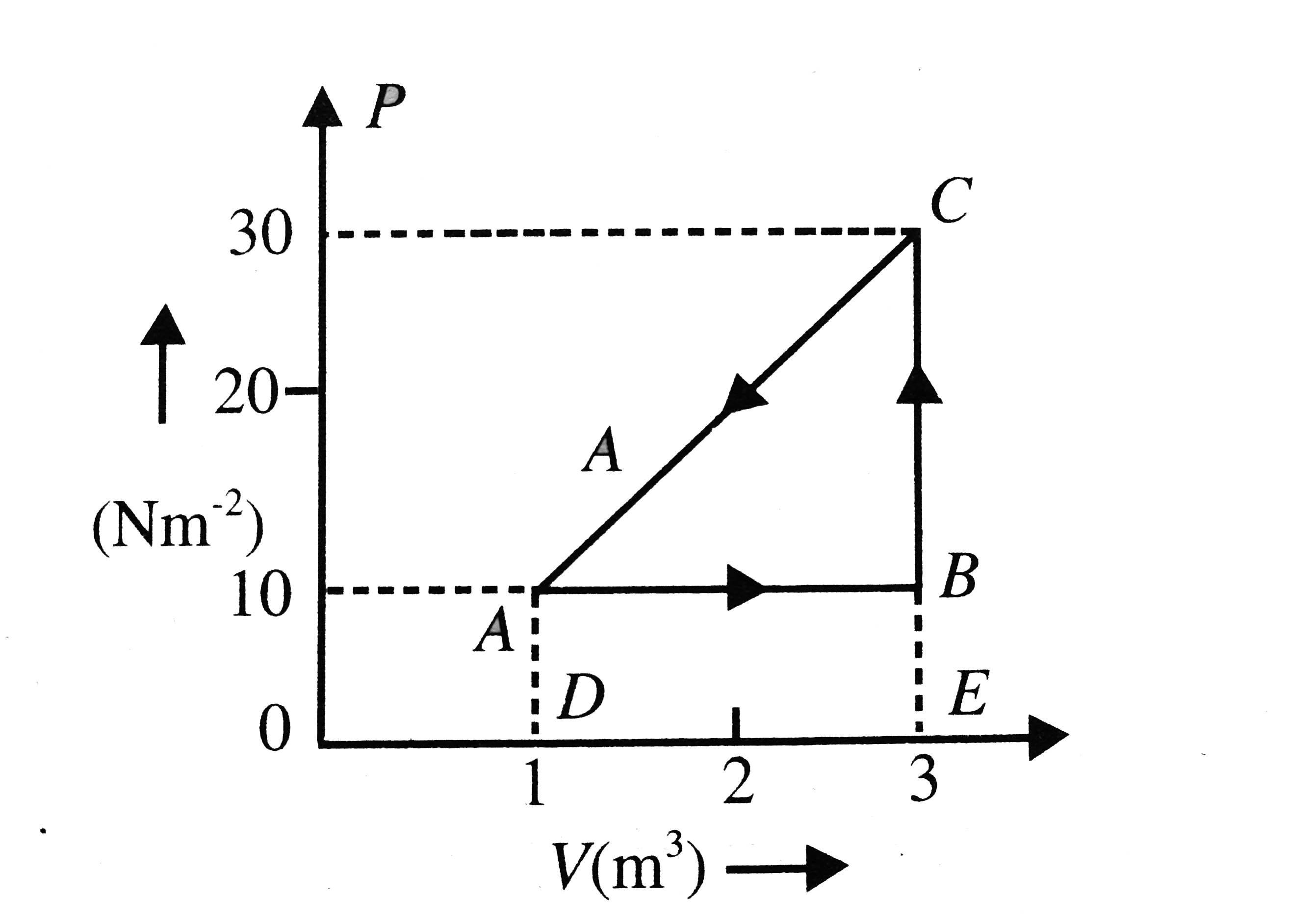Through a series of thermodynamic processes, the internal energy of a sample of confined gas is increased by 560 J. if the net amount of work done on the sample by its surroundings is 320 J, how much heat was transferred between the gas and its environment?
240 J absorbed
240J dissipated
880 J absorbed
880 J dissipated
The correct Answer is:A
By convention, work done on the gas sample is designated as negative , so in the first law of thermodynamics, ΔU=Q−W, we must write W=−320J. Therefore, Q=ΔU+W=560J+(−320J)=+240J. Positive Q denotes heat in.
Topper's Solved these Questions
- HEAT AND THERMODYNAMICSBOOK - PRINCETONCHAPTER - HEAT AND THERMODYNAMICSEXERCISE - COMPREHENSIVE DRILL
10 Videos
- CURVED AND ROTATIONAL MOTIONBOOK - PRINCETONCHAPTER - CURVED AND ROTATIONAL MOTIONEXERCISE - COMPREHENSIVE DRILL
11 Videos
- KINEMATICSBOOK - PRINCETONCHAPTER - KINEMATICSEXERCISE - MCQ
9 Videos
Similar Questions
In a thermodynamic process, pressure of a fixed mass of a gas is changed in such a manner that the gas release 20J of heat and 8J of work is done on the gas. If initial internal energy of the gas was 30J, what will be the final internal energy?
View SolutionIn a thermodynamic process, pressure of a fixed mass of a gas is changed in such a manner that the gas release 20J of heat and 8J of work is done on the gas. If initial internal energy of the gas was 30J, what will be the final internal energy?
View Solution
Knowledge Check
A system is provided with 200 cal of heat and the work done by the system on the surrounding is 40J. Then its internal energy
Aincreases by 600JBdecreases by 800JCincreases by 800JDdecreases by 50JA system is provided with 200 cal of heat and the work done by the system on the surrounding is 40 j. Then its internal energy
AIncreases by 600 JBDecreases by 800CIncreases by 800 JDDecreases by 5jIn a thermodynamic process, pressure of a fixed mass of a gas is changed in such a manner that the gas release 20J of heat and 8J of work is done on the gas. If initial internal energy of the gas was 30J, what will be the final internal energy?
A42JB12JC10JD18J
In a thermodynamic process, pressure of a fixed mass of a gas is changed in such a manner that the gas release 20J of heat and 8J of work is done on the gas. If initial internal energy of the gas was 30J, what will be the final internal energy?
View SolutionAn ideal gas is taken round a cyclic thermodynamic process ABCA as shown if Fig. If the internal energy of the gas at point A is assumed zero while at B it is 50 J. The heat absorbed by the gas in the process BC is 90 J.
(a) What is the internal energy og the gas at point C ?
(b) How much heat energy is absorbed by the gas in the process AB?
(c ) Find the heat energy rejected or absorbed by the gas in the process CA.
(d) What is the net work done by the gas in the complete cycle ABCA ?

View SolutionAn ideal gas is taken round a cyclci thermodynamic process ABCA as shown if Fig. If the internal energy of the gas at point A is assumed zero while at B it is 50 J. The heat absorbed by the gas in the process BC is 90 J.
(a) What is the internal energy og the gas at point C ?
(b) How much heat energy is absorbed by the gas in the process AB?
(c ) Find the heat energy rejected or absorbed by the gas in the process CA.
(d) What is the net work done by the gas in the complete cycle ABCA ?

View SolutionIn thermodynamic process, 200 Joules of heat is given to a gas and 100 Joules of work is also done on it. The change in internal energy of the gas is
View SolutionIn thermodynamic process, 200 Joules of heat is given to a gas and 100 Joules of work is also done on it. The change in internal energy of the gas is
View Solution
